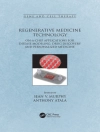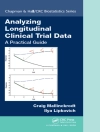Representing the first collection on the topic, this book builds from foundations to case studies, to future prospects, providing the reader with a rich and comprehensive understanding of the use of multi-criteria decision analysis (MCDA) in healthcare. The first section of the collection presents the foundations of MCDA as it is applied to healthcare decisions, providing guidance on the ethical and theoretical underpinnings of MCDA and how to select MCDA methods appropriate to different decision settings. Section two comprises a collection of case studies spanning the decision continuum, including portfolio development, benefit–risk assessment, health technology assessment, priority setting, resource optimisation, clinical practice and shared decision making. Section three explores future directions in the application of MCDA to healthcare and identifies opportunities for further research to support these.
Содержание
1. Introduction.- 2. Theoretical Foundations of Multi-Criteria Decision Analysis.- 3. Identifying Value-s: A Reflection on the Ethical Aspects of MCDA in Healthcare Decisionmaking.- 4. Incorporating Preferences and Priorities into MCDA: Selecting an Appropriate Scoring and Weighting Technique.- 5. Dealing with Uncertainty in the Analysis and Reporting of MCDA.- 6. Supporting the Project Portfolio Selection Decision of Research and Development Investments by Means of Multi-Criteria Resource Allocation Modelling.- 7. Benefit-Risk Assessment.- 8. Advancing MCDA and HTA into Coverage Decision-Making.- 9. Embedding MCDA in Priority Setting Policy Processes – Experiences from Low and Middle Income Countries.- 10. MCDA for Resource Allocation at a Local Level: an Application in the UK.- 11. Shared Decision Making.- 12. The Role of Multi-Criteria Decision Analysis (MCDA) in Health Research Priority Setting.- 13. MCDA for the Development of Clinical Practice Guidelines and for the Prioritization Clinical Research Questions.- 14. Using MCDA as a Decision aid in Health Technology Appraisal for Coverage Decisions: Opportunities, Challenges and Unresolved Questions.- 15. Beyond Value Function Methods in Multi-Criteria Decision Analysis for Health care.- 16. Best Practice for MCDA in Healthcare.
Об авторе
Dr Kevin Marsh is Executive Director responsible for Patient Preference work at Evidera. Prior to joining Evidera’s London office in April 2012, Dr Marsh completed his Ph D at the University of Bath, specializing in economic valuation techniques. After a year at Oxford University, he joined the Matrix Knowledge Group in London, where he built their economics practice. Dr Marsh’s research interests include the use of economic and decision analysis to inform health decisions, including pipeline optimization, authorization, reimbursement, and prescription decisions. His expertise include decision modeling, multi-criteria decision analysis (MCDA), and a range of economic valuation methods, such as stated preference value approaches. He recently co-chaired the ISPOR Taskforce on the use of MCDA in Health Care Decision-Making, and he is a co-convener of the Campbell and Cochrane Economic Methods Group.
Dr Mireille Goetghebeur is Global Scientist at LASER Analytica, Adjunct Professor at the School of Public Health, University of Montreal and President of the EVIDEM Collaboration. She holds a Ph D in basic sciences and an Engineering Diploma from France. Pioneering pragmatic decisionmaking approaches building on ethics, HTA and MCDA, her motivation is to stimulate meaningful evidence generation, holistic evaluation of healthcare interventions and accountable, reasonable and deliberative decisionmaking processes to tackle the ethical dilemmas of our time. She contributes to university programs in several countries and is involved in initiatives with organizations such as the World Health Organization, government agencies, and academic centers around the world. She collaborates with stakeholders across the decision continuum to optimize patient and population health and to develop effective, equitable and sustainable healthcare systems locally and globally.
Praveen Thokala joined the School of Health and Related Research (Sc HARR) at the University of Sheffield in March 2010 after completing an MASc from the University of Toronto and a Ph D from the University of Southampton. His research interests include health economic modelling, multi-criteria decision analysis, discrete event simulation modelling and optimisation. He recently co-chaired the ISPOR Taskforce on the use of MCDA in Health Care Decision-Making.
Dr. Rob Baltussen is an economist specialized in international health economics, with a Ph D in costing and cost-effectiveness analysis. He has extensive field work experience in around 25 countries in Africa and Asia, and worked as a senior health economist at the World Health Organization in Geneva. At WHO, he was responsible for the development of WHO guidelines on cost-effectiveness analysis.
At present, he is Head of Research at NICHE – the Nijmegen International Center for Health Systems Research and Education, located at the Radboud University Nijmegen Medical Center in the Netherlands. NICHE focuses on international health systems research, more specifically on improving access to health care for poor people, cost and cost-effectiveness analysis of SRH and HIV/AIDS, multi-criteria priority setting, and primary health care. Rob Baltussen is editor-in-chief of the journal Cost-Effectiveness and Resource Allocation and has published more than 100 international papers in Medline-indexed journals.












